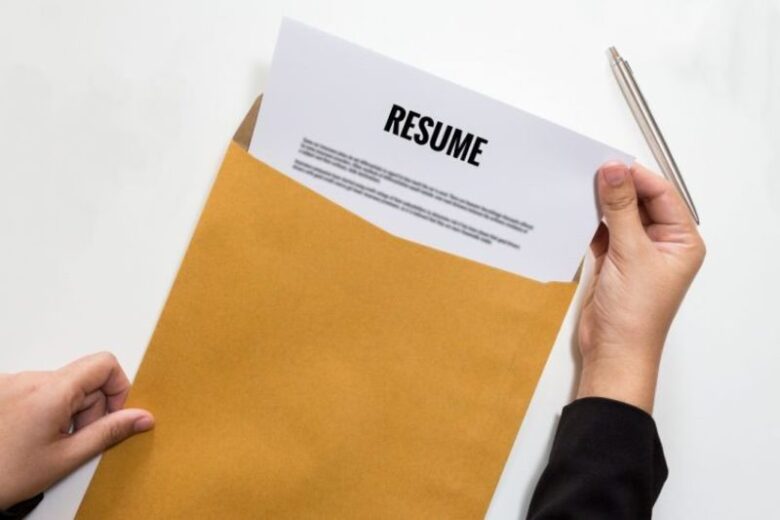Resume is a kind of detailed business card of the applicant, where in a short form, without a lyrical digression, all previous jobs, positions, merits and skills are listed. In order to attract the attention of the personnel officer, who selects a specialist for a vacant position in the company, you need to try to avoid the most dangerous traps, not to make frequent mistakes.

- Grammar and stylistic errors, typos and unstructured text. Resume teeming with similar “blunders” is the main contender in the trash. No one self-respecting recruiter would read the text with errors to the end. No company is interested in an illiterate employee.
- Unformatted text. It is very difficult to read a resume in which the text is written without paragraphs, selections, and clarifications. Personnel officers, as a rule, do not read the entire text, they professionally own reading “diagonally”, looking for the most important phrases for them in the resume. Such piece looks especially curious, where the applicant indicates that he is a confident computer user.
As ResumeGet.com says it is recommended to clearly distinguish headings and subheadings, it is forbidden to use a different font, multi-colored markers for highlighting, other decorations. It is allowed to use no more than two different fonts in one document, bold selections and underlines – in paragraphs and headings. A resume is an official document, not a love letter, to an employer.
- Template resumes similar to a hundreds of others. Clone-resumes would also not be considered in reputable companies, citing the fact that a person without a creative spirit would not be able to competently follow the course of a developing company. True, for technical personnel, these requirements are rarely applied.
It is better to avoid standard enumerations of skills and qualities: communicative, stress-resistant, positive, active, etc. Typical formulations should not be used: participated, worked, helped, taught, etc. Such words and expressions are boring and formal, do not reveal the uniqueness of the applicant at all.

Concrete phrases sound much better: “I trained three subordinates in the art of sales in two weeks” or “I expanded my client base by 30 percent, increasing the company’s profit by 90% in six months.” The main thing is to avoid exaggeration.
- Inaccurate start and end dates. Such blurring of chronological dates betrays a person who is not assembled, deceitful, purposeless, with a poor memory. It is easier to compiling a detailed resume opening a work book or restore the “white spots” of experience, detailing the cause of involuntary or voluntary unemployment.
- The goal is not indicated. What is the purpose of compiling a resume? Get a good position? Which one? The structure of it and its content largely depend on the answers to these questions. The same applicant may be interested in obtaining different positions, one for each new job should be compiled uniquely, taking into account the requirements of vacancies.
- Resume in PDF format or applications. Almost no recruitment agency takes such type of for consideration, unless a similar format has been agreed upon in advance. Structured text in the Word processor is the best option for preparing a marketing CV.
- Too much information. A resume in which the compiler describes in a detail and artistically his personal life, hobbies, achievements, marital status, hobbies, having a car, habits and so on, often falls into the section of curiosities on professional personnel sites. In order not to become a hero of such a column and not get the glory of a graphomaniac, the extra information should be completely removed from the resume. The date of its compilation also applies to the same list of superfluous information: it is not needed in the CV.
- False facts. Any information about the biography and experience of the applicant is easily checked by the security service of the employer company. Even if you succeed in tricking the personnel officer into a CV, attributing non-existent regalia to yourself or withholding undesirable biography facts, over time all the secrets would become apparent. Is this the purpose of the applicant by sending a knowingly false resume?
Distortion of information in dates of birth, increase or decrease in the term of work in previous positions, incorrectly indicated surname, name or patronymic, marital status, false information about the possession of the skills necessary for the selected position increase the likelihood that the resume would not be considered.

Experienced personnel officers pay special attention to the reasons for dismissal from the previous jobs. Writing the truth is better than misrepresenting the facts. If you did not have the opportunity to make a career in the previous company, it is necessary to write about this in the resume. Each fact of biography is easily verified.
- Posting an inappropriate photo. Photos in swimsuits, on the beach, in a home environment are not suitable for an official document, such as a CV. It is best to place a small photo at the very beginning of the resume, where the applicant is in a business suit, at the desk.
You should pay attention to the size and weight of the photo: there is nothing worse than a long-loaded resume when downloading mail in the personnel department. Such instances slow down the work of all mail, and, as a rule, immediately go to the “Deleted Items” folder. If the applicant does not respect the time of the personnel officer, the recruiter pays him or her the same.
A stranger would read your CV and he or she has never seen a job seeker. That is why you need to work on your resume creatively, trying to convey in it all your potential, experience, and skills. It is highly recommended to avoid frequent repetitions of the pronoun “I”. The main rule when creating a resume: this document should be drafted so that it is read with pleasure and invite you to an interview. The main purpose of writing a CV is to have a personal meeting with the employer. Although such a visit to a company does not yet guarantee the getting job.


